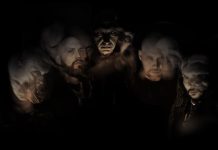One of my favorite things is to search and find people that had once played a significant role, big or small, in the music industry and to conduct an interview. The person that I’d been searching for many years and couldn’t find, even though he was “under my nose”, is Karl Walterbach, founder of the record label Noise, responsible for finding and making huge, bands like HELLOWEEN, KREATOR, RUNNING WILD, CELTIC FROST, VOIVOD, WATCHTOWER, GRAVE DIGGER, SKYCLAD and many more. Karl Walterbach immediately accepted to answer all the questions we made him, however harsh they were. And the truth is that he answered them all, in detail, thus making this interview a lesson for all, whether they are journalists or bands. We are talking about a man who defined in great proportion the history of the European heavy metal for at least a decade. He surely has very interesting things to say, from the time that there were controversies like the one with HELLOWEEN but rarely had the chance to hear his point of view. Have a cup of coffee or your favorite drink, log out from facebook for a while and read carefully…
 Many people do not know your punk background. Can you tell us how you started doing business with punk bands in the beginning of the 80’s?
Many people do not know your punk background. Can you tell us how you started doing business with punk bands in the beginning of the 80’s?
Actually I got involved a bit earlier, in 79 already. The background: I was a radical activist in the first half of the 70s strongly influenced by the french situationists. In those days we believed in the need of a revolution of society. The wake-up call came when I was thrown into prison for 15 months in the mid 70s ,just carrying around some molotov cocktails .when incarcerated, the left simply forgot me and my friend. I learned to know the hard way the shallowness of the so-called left’s ideals. Finally when I came out of prison in August 76 I could not continue the same way. And a couple of friends felt the same. We figured ,rather than using slogans and empty words in the name of revolution, we needed to address more personal issues and put us as the subject of revolution in the centre and define ourselves in a radical new way. So it no longer was about the revolution of society but of ourselves. Wilhelm Reich became very important to us . And coincidently a cultural, a musical revolution, happened at the same time: Punk . The Sex Pistols with “Anarchy in the UK” spoke to our hearts and reflected our feelings. We lived in squatted houses, practised all types of open sex, lived a life outside society, had no regular jobs and really liked the Punk attitude. We organised the first Punk demonstration with a couple of hundred kids at a local prison with bands playing on an open truck and this culminated in 79 with an antifascist festival and German Punk band HANSAPLAST (the most successful German Punk band 
There’s a very interesting story, dating back to the cold war and the illegal bands from former East Germany. Can you tell us why it’s still prohibited for you to get a visa for Russia even nowadays?
 A friend of mine with whom I had organized two big festivals under the banner name ATONAL (very avantgarde, underground, performance – industrial oriented) and who later launched TRESOR club, Berlin’s Techno Mekka, approached me about some Underground bands, not licensed in the East, who had some rehearsal recordings and wanted them released in the West. I jumped on this and had two meetings under very difficult circumstances with a lot of paranoia on behalf of the East Germans about Stasi spies among themselves. Most of the people involved got arrested and interrogated by the East German Secret Police after my second meeting. So it looked like everything fell apart. But to my surprise somehow the tapes got smuggled out of East Berlin and landed on my desk. I took the opportunity to strike against the East German Stalinists and released the tapes under the title “DDR von unten” (DDR from below) with strong West Berlin Radio coverage. I did not give much thinking to the consequences but as it appeared my name got noted and ended up in their secret service data bases. And as their databases where obviously controlled by the KGB my name spread through the East. When I applied for a Russian visa 10 years after the wall came down I was rejected and I was told bluntly that I will not have a chance in my life time to travel into Russia. So what…
A friend of mine with whom I had organized two big festivals under the banner name ATONAL (very avantgarde, underground, performance – industrial oriented) and who later launched TRESOR club, Berlin’s Techno Mekka, approached me about some Underground bands, not licensed in the East, who had some rehearsal recordings and wanted them released in the West. I jumped on this and had two meetings under very difficult circumstances with a lot of paranoia on behalf of the East Germans about Stasi spies among themselves. Most of the people involved got arrested and interrogated by the East German Secret Police after my second meeting. So it looked like everything fell apart. But to my surprise somehow the tapes got smuggled out of East Berlin and landed on my desk. I took the opportunity to strike against the East German Stalinists and released the tapes under the title “DDR von unten” (DDR from below) with strong West Berlin Radio coverage. I did not give much thinking to the consequences but as it appeared my name got noted and ended up in their secret service data bases. And as their databases where obviously controlled by the KGB my name spread through the East. When I applied for a Russian visa 10 years after the wall came down I was rejected and I was told bluntly that I will not have a chance in my life time to travel into Russia. So what…
 At a time that metal was not very recognised by record labels in Europe, what were your criteria for signing bands?
At a time that metal was not very recognised by record labels in Europe, what were your criteria for signing bands?
I’m interested in genuine cultural movements, music for identity, genre, not hyped cloned pop music for the masses. So that’s where I come from. Furthermore I like the live circuit and guitar riffs. So that are the key elements for my interest in Punk and Thrash originally. The more unique and provocative a band came around the better. The ability to play a perfect instrument was definitely not on the forefront of my thinking. Just listen to the Hellhammer EP, the forerunner of Celtic Frost
 Almost all of your signings were German. In 1983-84, what was your team of people in the company? Did everything have to be approved by yourself? (artist, contracts, artwork, logos, etc?)
Almost all of your signings were German. In 1983-84, what was your team of people in the company? Did everything have to be approved by yourself? (artist, contracts, artwork, logos, etc?)
Naturally I started in the early 80s just by myself and added 2-3 people in 82/83: a production & sales guy, a secretary & bookkeeper, a promo girl. But all creative (A&R, Marketing) and strategical (distribution/financial) decisions where always made by myself until 94 when I moved to LA.
Some of the most defining albums for heavy metal, were released by your company in the 80’s. Apart from signing these bands, how much more should be attributed to you personally?
The moment I signed a band I pretty much left them alone. Especially with regards to music. Maybe some of the producers/engineers involved in the production had an impact. for example the producer team of Helloween (Tommy Newton & Hansen). The most important maxime of NOISE was always “Stay the Course”, meaning : don’t change styles. I was a bit more involved in record packaging, cover artwork. Simply most band’s lacked any great concept here. Except for Celtic Frost, Running Wild and Helloween, Voi Vod.
What do you remember from signing, producing and releasing of the albums?
I can’t go into much detail here cause I was usually only setting up the team, the studio and green lighted the preproduction songs. Mostly it went smoothly – at least in the early years. Problems only surfaced when bands tried to make so-called career moves, with the intention to get bigger (in their thinking)..We all know the results: “Pink Bubbles…”, “Cold Lake” , Digger…
Bands like OVERKILL, VOIVOD, ST VITUS, WATCHTOWER, became known in Europe due to NOISE. How were you introduced to these bands, from the other side of the Atlantic, at a time when communication was so much more difficult?
Hey we didn’t live in the stone ages !!! There where mags, labels, networks. We had Fax machines and phones !
 In the 80’s, it was down to record companies to finance the tours of the bands, in order to promote their records. Can you tell us how this was done by NOISE? Did the bands also have to pay some money for touring?
In the 80’s, it was down to record companies to finance the tours of the bands, in order to promote their records. Can you tell us how this was done by NOISE? Did the bands also have to pay some money for touring?
When record sales where picking up we always financed tours. Mostly 100% and quite generous. For example in Helloween’s case when they needed to set up their European tour to support Keeper 2 we came close to half a million marks.
In the late 80’s and 90’s, some of your artists left the company with many complaints. What could have gone different from your side?
You are joking here right! On one end we where the most successful European metal label and on the other end our band’s where complaining? What about? None of these bands complaint when they where under contract, that’s for sure. I tell you a little secret here: Rock’n Roll is not much liked in Germany by society and Rock bands are usually outcasts. The family, the parents usually like to see their kids take serious  jobs. As 80% all rock musicians from Germany are usually coming from middle class families they go to university to learn a well paid job. So in every case there was this conflict between Education and Music. Sooner or later every single musician had to make this decision. I new this and I felt threatened. So I decided the moment a bands sales picked up to pay regular monthlys to all key musicians in that band to just make sure they where leaning towards the music end. At the end of the 80s I had always 5-6 bands supported this way. And this was not a contractual obligation! I did this out of my free will! And that’s the reason why so many bands from the original NOISE rooster are still around. These regular payments enabled my bands to make a commitment for the music. There is probably no label from the 80s with such a high survival quote of bands as NOISE records!
jobs. As 80% all rock musicians from Germany are usually coming from middle class families they go to university to learn a well paid job. So in every case there was this conflict between Education and Music. Sooner or later every single musician had to make this decision. I new this and I felt threatened. So I decided the moment a bands sales picked up to pay regular monthlys to all key musicians in that band to just make sure they where leaning towards the music end. At the end of the 80s I had always 5-6 bands supported this way. And this was not a contractual obligation! I did this out of my free will! And that’s the reason why so many bands from the original NOISE rooster are still around. These regular payments enabled my bands to make a commitment for the music. There is probably no label from the 80s with such a high survival quote of bands as NOISE records!
Do you think that some of the disputes were down to mis-information and mis-communication?
You know success breeds jealousy. We don’t live in a perfect world! A band which is lagging sales wise sees some other band sales exploding and blames the lack of support. These things happen all the time . Budgets of any given band are a percentage of the income they generate for the company. At NOISE 15%-20% was spent for promo. Yes and some bands felt they deserved more.
Taking a couple of cases:
 a. CELTIC FROST: You “accuse” them of selling out, trying to obtain a poser/glam image. They say different things…
a. CELTIC FROST: You “accuse” them of selling out, trying to obtain a poser/glam image. They say different things…
It’s a fact. Tom is far too strong willed to accept images and other influences from outside people like a label. And look how he treated his band mates. In and out. Constant name changes. Maybe you can do this with some musicians kicking people around all the time for stupid reasons showing no respect. But your label! One time he left our studio and we had to repaint the full studio before leaving! We had to charge him for these damages about 10.000 marks.
He was/is a very instable person mentally. Genius and Madness are very close.
 b. SKYCLAD: You better ask Andy Sneap here and he knows best what was wrong with Martin. The break-up of the very talented Sabbat with Andy Sneap as songwriter had to do with this unreliable character Martin Walkyier. And it continued later with Skyclad. I’m not a Psychiatrist , I can’t explain mad people and their bizarre stories you journalists produce a forum for.
b. SKYCLAD: You better ask Andy Sneap here and he knows best what was wrong with Martin. The break-up of the very talented Sabbat with Andy Sneap as songwriter had to do with this unreliable character Martin Walkyier. And it continued later with Skyclad. I’m not a Psychiatrist , I can’t explain mad people and their bizarre stories you journalists produce a forum for.
c. KREATOR: Like Kai Hansen, like Rolf Kasparek, Mille is a very grounded person , very reliable – this is what’s needed for stardom, people like them , they make working in this business worthwhile. If you fly high and the success overtakes you (like Helloween’s Weikath) you quickly get burned and in most cases you destroy your selves, this can happen through all kinds of drugs or mentally…
 The biggest battle was between NOISE and HELLOWEEN. How much did this influence the future of your company? It is widely said, that the contract signed by HELLOWEEN, is the “strangest” in heavy metal history, with the band taking way too little money even for great sales…
The biggest battle was between NOISE and HELLOWEEN. How much did this influence the future of your company? It is widely said, that the contract signed by HELLOWEEN, is the “strangest” in heavy metal history, with the band taking way too little money even for great sales…
Come on you can’t take this nonsense for face-value !!! How many bands did NOISE sign 150 – 200 ? Everytime we used the same contract as blueprint we had worked out with professional music biz lawyers at the start of NOISE. Most of the time a band had a lawyer appointed when they negotiated a deal with us. This blueprint structurally survived all these negotiations. It was the base for SANCTUARY later purchasing all of NOISE, not Inside Out, which they also intended to buy but due to shitty contracts didn’t. When Helloween’s Maiden Management challenged our contracts in court over two years the band and their management  lost on all counts !!! read the court decisions, you can find them on the Internet at Wikipedia, because they where exemplary ! We had even overpaid the band by nearly 350.000 marks. These NOISE contracts where later examined by various US Majors because they needed to be sure that we had industry standard contracts if they started doing business with us. This was a matter of securing their advance payments as they knew full well that some indie labels had bizarre contracts. Not us! By the way: the original contract we did with Helloween already was renegotiated by their original manager Limb Schnoor (later shamelessly fired by Helloween) to very fair terms!
lost on all counts !!! read the court decisions, you can find them on the Internet at Wikipedia, because they where exemplary ! We had even overpaid the band by nearly 350.000 marks. These NOISE contracts where later examined by various US Majors because they needed to be sure that we had industry standard contracts if they started doing business with us. This was a matter of securing their advance payments as they knew full well that some indie labels had bizarre contracts. Not us! By the way: the original contract we did with Helloween already was renegotiated by their original manager Limb Schnoor (later shamelessly fired by Helloween) to very fair terms!
 With your knowledge of the way record companies were working in the 80’s, can you please explain to us, how an Artist who sold hundreds of thousands of records, was not really making much money? What other costs were involved?
With your knowledge of the way record companies were working in the 80’s, can you please explain to us, how an Artist who sold hundreds of thousands of records, was not really making much money? What other costs were involved?
I’m not the budget master of any band. So I can’t explain this. We paid an average of 16% of ppd (and higher based on sales), so anywhere from 1.50-3 Marks, and usually the recoupable costs where just studio, video and tour supports, so every band had to handle their own business. If a band pays an expensive Manager unregulated expenses , blows up studio, video and touring budgets and pays 20% gross plus 15% booking fees than they are financially in trouble. A confidential source within the Helloween camp once told me, that he saw a 100.000 mark expense bill from their management. Need I to tell more?
In the 90’s, you continued with some monumental releases from bands like STRATOVARIUS, VIRGIN STEELE, CONCEPTION, ELEGY, SKYCLAD, POVERTY’S NO CRIME, etc. It was a different time, different conditions and mostly different artists.
Yeah the 90s defined by Alternative Rock, Grunge, Crossover. Not easy years for us but our sales where pretty stable throughout. We did not grow much beyond ’92 but did not decline either. We had quite a few established bands on a worldwide base and a very deep catalogue, which helped a lot too.
 How would you compare the 80’s with the 90’s and NOISE to T&T?
How would you compare the 80’s with the 90’s and NOISE to T&T?
T*T signed basicly the same type of bands we at NOISE signed, they where more or less a Mini-NOISE but to their disadvantage, late starters, underfunded and badly distributed. So by picking them up, we just replaced some of the bands we where in the process of loosing, like Running Wild and Kreator. The problems came not from these two bands but from their Management Drakkar. Boggi Kopec, who was in charge there, originally had worked at my company as promotion guy in the late 80s, but it did not work out. He was not the character to push bands to the magazines. So after 6 month we suggested to him to manage two of our bands, Kreator and Running Wild. After some reflection he finally agreed. In addition to those two he added SODOM from Steamhammer. Two years down the line he called me one day complaining that he could hardly make a living as manager with those three bands (unbelievable huh !!!) and asked for help. In consultation with the boss of SPV/Steamhammer we got tricked to give him the publishing rights for two songs on each new album of those three bands. And this was probably the biggest strategical mistake I ever made in my life. A few years later this led ultimately to the birth of GUN Records, a BMG controlled and financed Rocklabel which made HIM , WITHIN TEMPTATION successful and exploited our two bands . How could this happen ?
 Let me go back a few years into NOISE history: the already huge success of Helloween’s WALLS OF JERICHO brought us into the focus of US Majors. I ultimately decided to go with RCA in North America, a fully owned BMG company. Consequently they released Helloween’s “Keeper 1” with sales of 300.000 +, very respectable numbers, achieved with virtually no touring in the US, really puzzling. This of course thrilled the guys at RCA and they wanted to be deeper involved. They suggested to do a meeting with some of their head guys in Germany, in a city named Bayreuth. If a recollect correctly that meeting finally came to fruition some time in 89 with the intention of setting NOISE up as their rock label on a worldwide base. These meetings lasted a full weekend just me and a handful of BMG top guys discussing a take-over and worldwide battle games. BMG was in desperate need for a big Rock label and NOISE was designed to be it. But I always had an inner aversion against cooperate guys , their attitudes and mentality. I blew it. It was not about numbers! They were really shocked as in their understanding everything was up for sale. Okay it did not work out and a few years later they made a new approach. This time they sat down with DRAKKAR, and because Boggi Kopec the owner (who by the way later discovered NIGHTWISH for BMG) needed help and brought in my former label manager from EMI (recall: after Keeper 2, NOISE did a four band deal with EMI Germany for worldwide distribution which involved Running Wild, Celtic Frost, Helloween and a newcomer V2). After my EMI deal collapsed due to their trickery by signing Helloween direct to EMI UK causing Million Mark plus loss in the books of German EMI, Wolfgang Funk, my former EMI label manager, needed a new playground. So he partnered with Mr. Kopec. First they cut a half million publishing deal by using the publishing rights of Sodom/Kreator/RW (remember just two tracks! per album) as a means and with the intention to deliver more, much more. Consequently I received a call from Drakkar for renegotiating the Kreator contract with the intent of giving them free! For RUNNING WILD they sent in the auditors to verify my accounting. So the hand I originally fed bit back. Yeah it’s really a cut-throat business here. So I had to make Drakkar/Gun/BMG jump through a hoop to get my demanded 6 digit figure for the release of KREATOR, which after much wrangling they finally agreed to. The RW audits collapsed without result and GUN Records was born.
Let me go back a few years into NOISE history: the already huge success of Helloween’s WALLS OF JERICHO brought us into the focus of US Majors. I ultimately decided to go with RCA in North America, a fully owned BMG company. Consequently they released Helloween’s “Keeper 1” with sales of 300.000 +, very respectable numbers, achieved with virtually no touring in the US, really puzzling. This of course thrilled the guys at RCA and they wanted to be deeper involved. They suggested to do a meeting with some of their head guys in Germany, in a city named Bayreuth. If a recollect correctly that meeting finally came to fruition some time in 89 with the intention of setting NOISE up as their rock label on a worldwide base. These meetings lasted a full weekend just me and a handful of BMG top guys discussing a take-over and worldwide battle games. BMG was in desperate need for a big Rock label and NOISE was designed to be it. But I always had an inner aversion against cooperate guys , their attitudes and mentality. I blew it. It was not about numbers! They were really shocked as in their understanding everything was up for sale. Okay it did not work out and a few years later they made a new approach. This time they sat down with DRAKKAR, and because Boggi Kopec the owner (who by the way later discovered NIGHTWISH for BMG) needed help and brought in my former label manager from EMI (recall: after Keeper 2, NOISE did a four band deal with EMI Germany for worldwide distribution which involved Running Wild, Celtic Frost, Helloween and a newcomer V2). After my EMI deal collapsed due to their trickery by signing Helloween direct to EMI UK causing Million Mark plus loss in the books of German EMI, Wolfgang Funk, my former EMI label manager, needed a new playground. So he partnered with Mr. Kopec. First they cut a half million publishing deal by using the publishing rights of Sodom/Kreator/RW (remember just two tracks! per album) as a means and with the intention to deliver more, much more. Consequently I received a call from Drakkar for renegotiating the Kreator contract with the intent of giving them free! For RUNNING WILD they sent in the auditors to verify my accounting. So the hand I originally fed bit back. Yeah it’s really a cut-throat business here. So I had to make Drakkar/Gun/BMG jump through a hoop to get my demanded 6 digit figure for the release of KREATOR, which after much wrangling they finally agreed to. The RW audits collapsed without result and GUN Records was born.
Out of all these artists that you have worked with, you must have great stories to share. Can you reveal some to us?
Two many, but I prefer to leave this out here and reserve it for a book later on.
 Kai Hansen, is probably the one who you worked with for the longest, through the HELLOWEEN and RAY days. How was your collaboration?
Kai Hansen, is probably the one who you worked with for the longest, through the HELLOWEEN and RAY days. How was your collaboration?
I worked with Kai almost from the beginning of NOISE towards the very end. He is a very clear sighted person (he originally studied law but aborted it midway) very smart in business and character wise straight forward and very nice person, besides that he is a very talented musicians. He is the only real survivor of the Helloween battles and clearly saw himself first hand what kind of grave Weikath was digging for HELLOWEEN and jumped ship. Hey the decline by two thirds from Keeper 2 to Pink Bubbles speaks for itself !
What bands are you most proud of signing? Which ones do you think you had the best working relationship with?  Which ones you wish you had never signed?
Which ones you wish you had never signed?
Kreator and Helloween. The first because they have proven that persistance is so important in this genre of music and the latter because I have proven that you can do single marketing without selling out. What came after this huge success is a different story, which I like to call “the story of greed”.
Never Signed: Killing Joke – a hot potato, no label , big nor small, was willing to work with in the UK. And I was teased into working with a trio of madmen: Jazz Coleman, Paul Atkins, Paul Raven (deceased).
Back then, record companies had much more influence in the sound, production and visual image of the bands. Can you give us some examples of how your input helped your bands?
I hooked my bands up with graphic artists/painters. One of the best known due to my recommendations: Andreas Marshall.
Greece had always been a strong market for Noise. Did you face any kind of problems did you face, however, during late 80’s – early 90’s with distribution/magazines etc?
I can’t say much here. Since 94 I was away in the States and the business was handled by my MD and before, the Greek market was just one of the smallest in Europe for NOISE, even with Melodic Metal popular over there.
 Not many people know that you had Hellhound Records, a label specialized in stoner/doom metal, ahead of its time, with bands like THE OBSESSED, ST. VITUS or COUNT RAVEN. Why do you think this attempt was “doomed” to fail?
Not many people know that you had Hellhound Records, a label specialized in stoner/doom metal, ahead of its time, with bands like THE OBSESSED, ST. VITUS or COUNT RAVEN. Why do you think this attempt was “doomed” to fail?
They where in trouble sales wise when they approached us and hoped for better sales through our networks. But it did not work out. The market appeared to be too small to make it worthwhile. Today things have changed for Doom/Stoner Rock. And I myself like it among all substyles best. But that’s 20 years later. Now I’m actively looking for such bands. It’s a personal thing.
When you moved to L.A., which differences did you see between the European and the US scene?
 Firstly it’s all on a different level size wise, the budgets are much bigger as are sales. But mostly it’s about the attitudes. US bands are committed to their music much much more than continental European bands and especially German bands. This has a lot to do with the huge costs of studying in the US. If you are faced financing your education with 250.000, 500.000 and more US dollars you can’t play around much. As a result those approaching a music career have no alternatives, they are all more or less drop-outs. This is at the core of the vitality of the US rock scene. Another very important aspect is the touring: you can’t get in the cooperate controlled mass media as a rock band, there is no national radio, no relevant national rock media, so you need to get your message around by touring. Constant touring. It’s a very closed market. European bands don’t understand this. A three month tour means nothing.
Firstly it’s all on a different level size wise, the budgets are much bigger as are sales. But mostly it’s about the attitudes. US bands are committed to their music much much more than continental European bands and especially German bands. This has a lot to do with the huge costs of studying in the US. If you are faced financing your education with 250.000, 500.000 and more US dollars you can’t play around much. As a result those approaching a music career have no alternatives, they are all more or less drop-outs. This is at the core of the vitality of the US rock scene. Another very important aspect is the touring: you can’t get in the cooperate controlled mass media as a rock band, there is no national radio, no relevant national rock media, so you need to get your message around by touring. Constant touring. It’s a very closed market. European bands don’t understand this. A three month tour means nothing.
Why did you finally close Noise Records and which was the share of Internet piracy to it?
When I closed shop it had to do on one side with my vision: I foresaw the collapse of sales as I was addicted to John Negropontes writing but when I sold , sales where still solid (and that’s why the sales price was quite good) on the other hand I also needed a break. The “business” had nothing to do with creative things anymore – 90 % of my time I was talking to lawyers, accountants and bankers.
Can you name us some bands that you thought would be your best-sellers but proved to be just a “flop”?
No. I never think in those type of terms. I build bands step by step. And that needs a degree of patience and commitment. A super-hype is not very helpful. The faster you go up the faster you go down, a very simple rule. A solid rock career build to last 20 years or longer requires 3-4-5 album for build-up.
 Which musicians have been the most difficult to deal with, because of their weird personality?
Which musicians have been the most difficult to deal with, because of their weird personality?
#1 Tom Warrior (strictly nutty)
#2 Michael Weikath (megalomaniac)
# 3 Jazz Coleman (shizophrenic)
#4 Martin Walkier (crybaby)
#5 Mr. Boltendahl (backstabber)
There have been bands in your label, as CONCEPTION from Norway, whose albums like “Flow” did not sell well at that time, but are widely recognized more than 15 years after their release. Same goes for CELTIC FROST’s “Into the pandemonium”. Which are your best examples of your bands/albums being ahead of their time?
Very typical are WATCHTOWER. Actually my prime example, and maybe Coroner, a well respected band in their day with lot’s of critical support but no real sales dynamics.
Some groups disbanded after their contract with NOISE ended or right before that. What do you have to say about the cases of CORONER, CONCEPTION, MORDRED, SABBAT?
In some of these cases it was internal (Conflict Sneap vs. Walkyier) in other cases lack of sales (Mordred, Coroner) without the ability to make a living.
What do you do now with Sonic Attack?
I’ll call this full service management. It’s a structure which reflects the shift of importance from record labels to managers in these digital days with soundcarrier sales trending towards zero. You can read in more detail about this at my blog at:
blog.sonicattackrecords.com
blog.sonicattackrecords.com/about.us
Sakis Fragos / George Koukoulakis



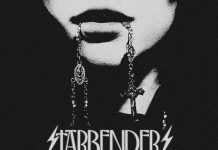

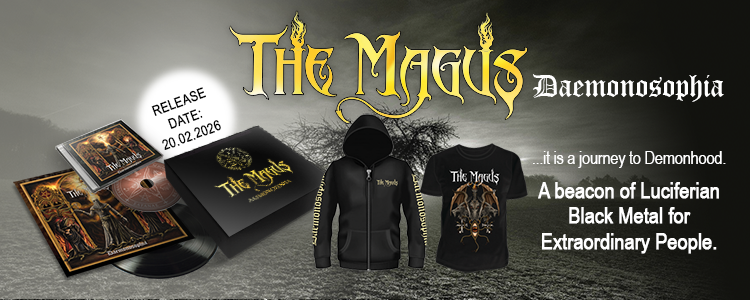
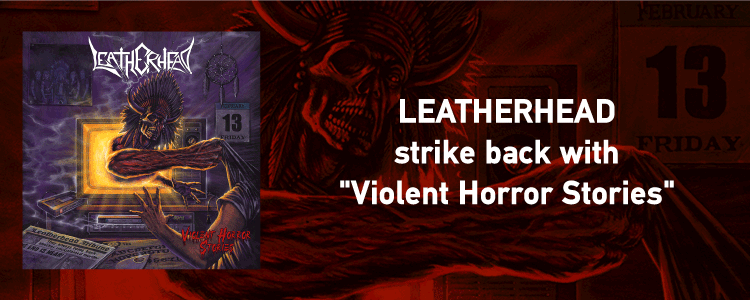
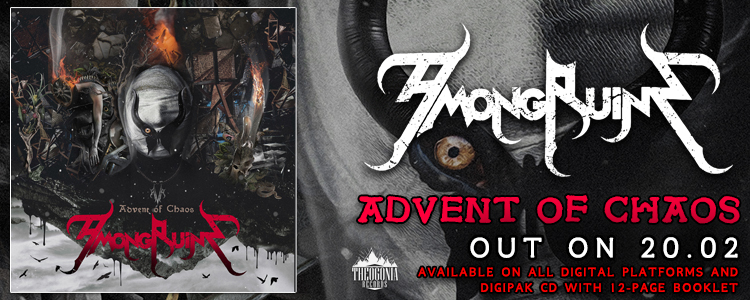
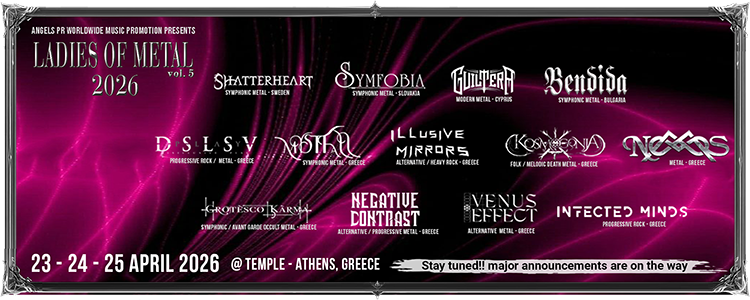 >
>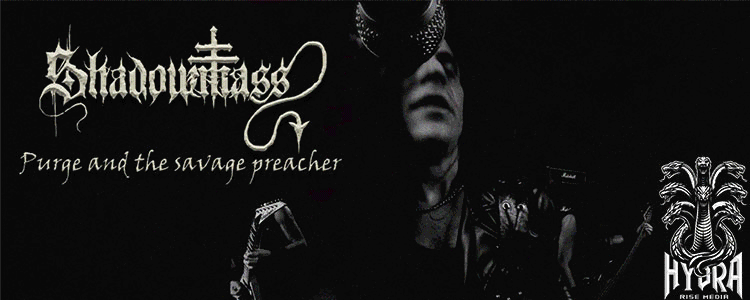
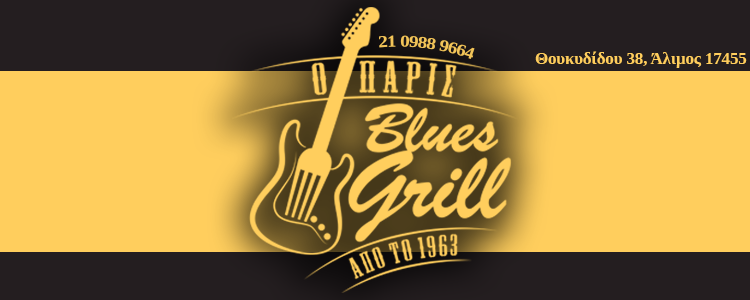

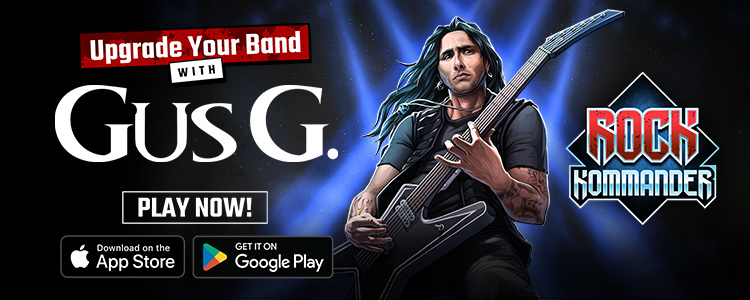

![A day to remember… 24/2 [MYSTIC PROPHECY] Prophecy](https://rockhard.gr/wp-content/uploads/2026/02/Mystic-prophecy-savage-sbit-218x150.jpg)
